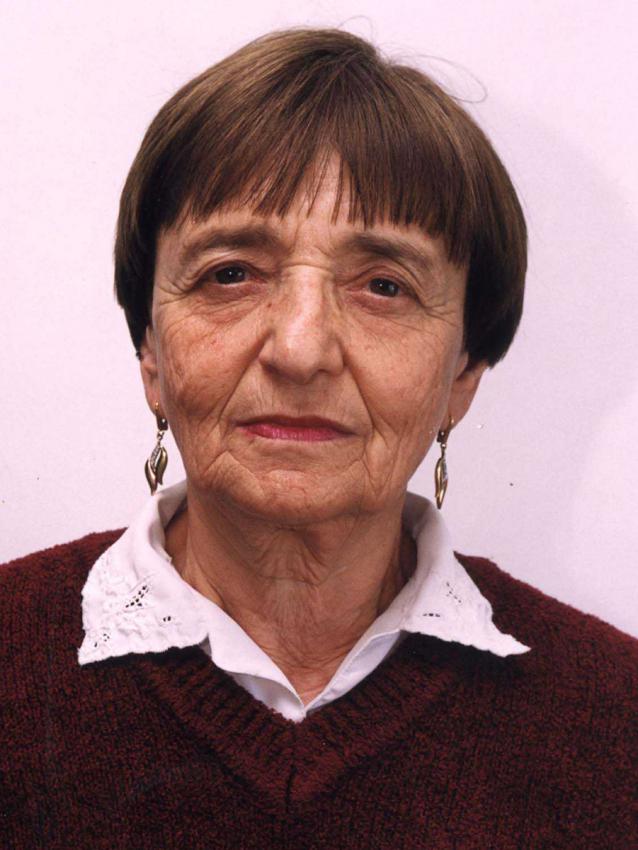Dina Baitler lit one of six torches at the State Opening Ceremony of Holocaust Remembrance Day at Yad Vashem in 2001.
Dina Levine Baitler was born in Vilna in 1934, the second daughter in a family of three children. In 1940, when Vilna was under Soviet occupation, Dina's father was deported to Siberia, accused of being a capitalist. In 1941 the Germans conquered Vilna and soon after, during an action in the ghetto, Dina, her older brother and her grandmother were caught and taken to the killing pit in Ponary.
There, on the edge of the pit, they were shot together with thousands of other Jews who had been taken from the ghetto. Seven-year-old Dina, who was slightly wounded by a shot in her leg, fell into the pit among the corpses.
"At night," she describes, "I heard a voice of a woman who was asking in Yiddish if anyone else was alive. There were wounded people who called out for help. The guards, who apparently were still there, heard them, came back and started to shoot again."
Towards morning, Dina pulled herself out of the pit and headed towards the forest. She wandered through the forests and villages for the rest of the war begging for food and shelter. While wandering, she met a woman who helped her adopt the false identity of a Polish orphan, and with that identity she continued her wandering until she came across Russian soldiers to whom she told her story.
After the war she returned to Vilna and was placed in a Jewish orphanage where she remained until she completed her studies. She searched for her mother and younger brother but their fate remained unknown. Her father, who was in Siberia, survived the war and immigrated to Israel. Dina married and in 1960 she immigrated to Israel, as well. Today, Dina has a son and a daughter, 10 grandchildren, and one great-granddaughter.


